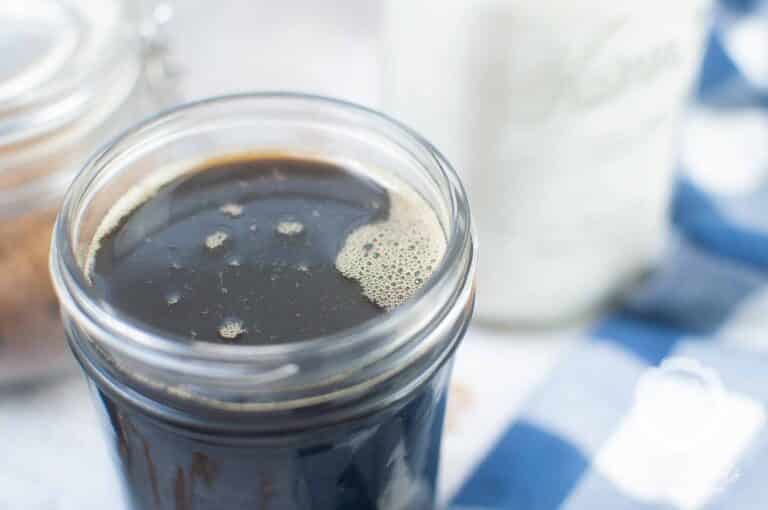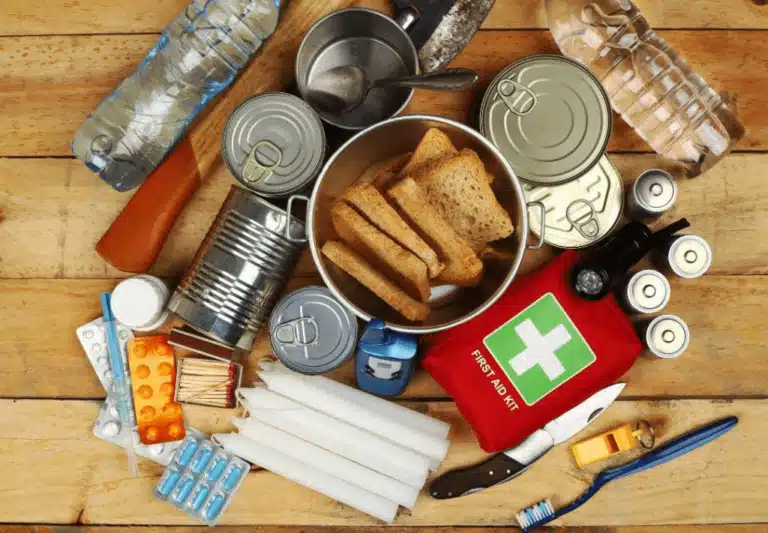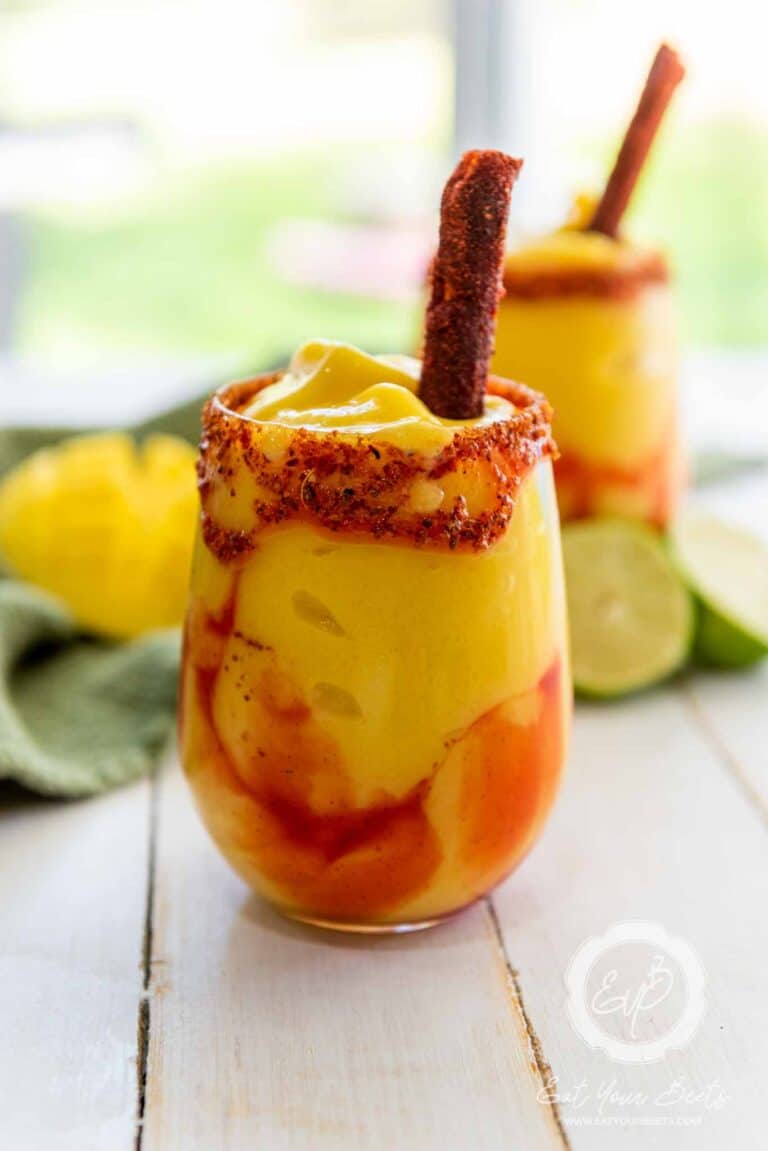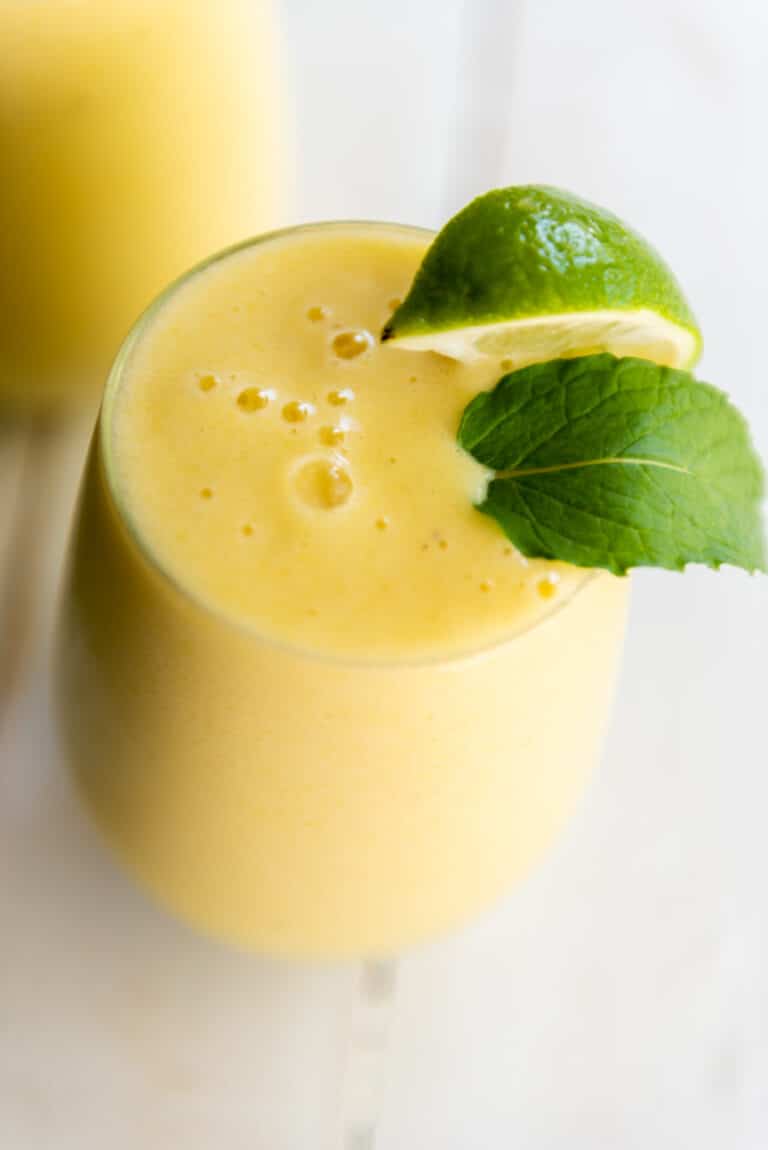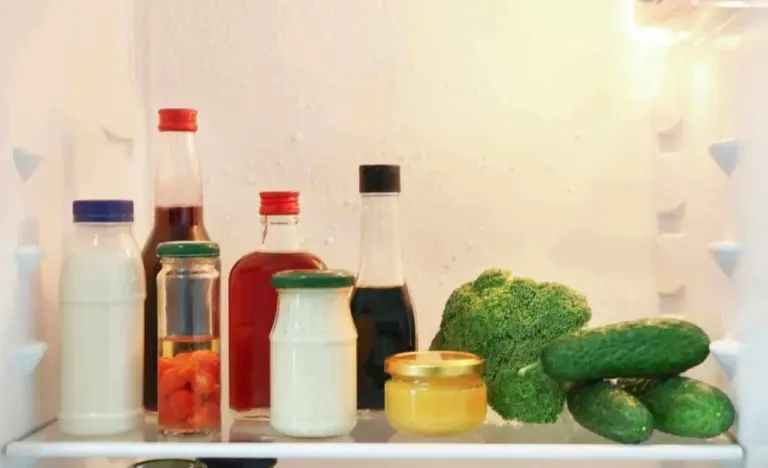Does Pickle Juice Go Bad?
Does pickle juice go bad? The answer may surprise you! Not only can store bought or handmade pickling juices last an impressive amount of time. Read this blog post today about if pickle brine goes bad!

Contents
How Long Can Pickle Juice Last?
Opened pickle juice should typically be consumed within three months if stored properly in the fridge. While unopened pickle juice, when stored correctly, can remain good for up to two years due to its high vinegar content, which acts as a natural preservative.
It’s important to note that this is a general guideline and the actual shelf life may vary based on factors such as pickle storage conditions and the specific recipe used for pickling. Do not forget to check for signs of spoilage before using leftover pickle juice.
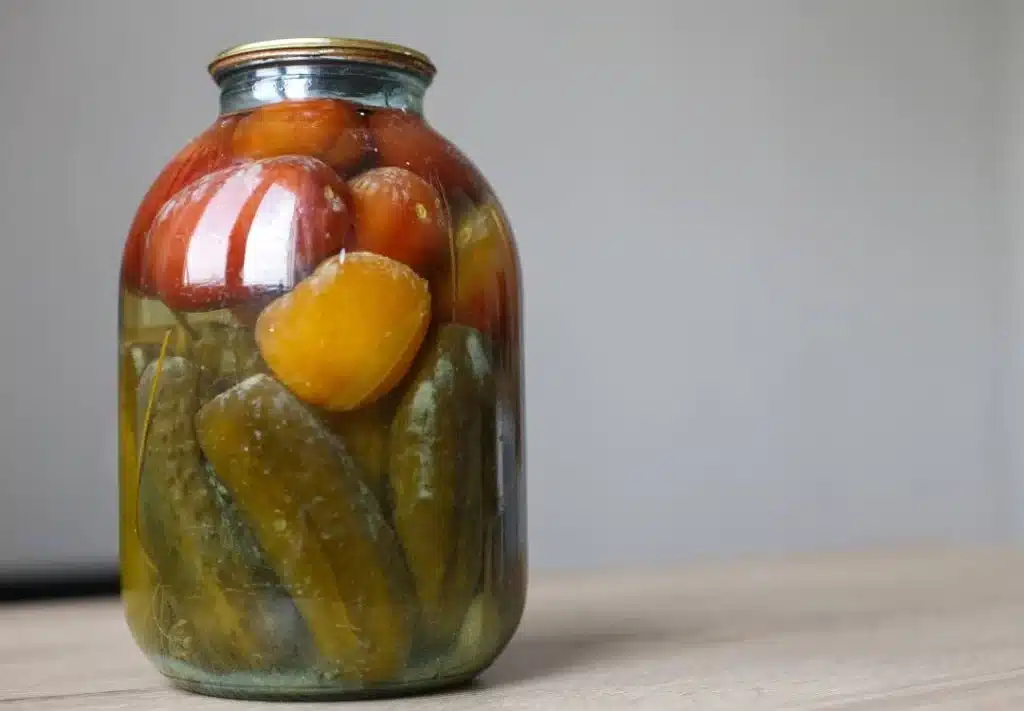
Does Pickle Juice Go Bad?
Does pickle juice go bad really? Yes, pickle juice can go bad over time, especially if not stored properly. While the vinegar and salt in pickle juice act as natural preservatives, they can’t keep the juice fresh indefinitely.
Store-bought pickle juice in an unopened jar can last up to a year or more in your pantry due to the preservatives added during the commercial canning process. However, once opened, it’s best to consume it within three months for optimum flavor and freshness.
On the other hand, homemade pickle juice, which typically lacks these additional preservatives, tends to have a shorter shelf life. It’s recommended to use homemade pickle juice within a few weeks of making it.
How Can You Tell if Pickle Juice Has Gone Bad?
Pickle juice, like many other food products, can go bad if it is not stored and handled properly. Here are a few signs that your pickle juice might have spoiled:
- Smell: A foul or rotten smell is often the first and obvious sign of spoilage in many foods and beverages, including pickle juice.
- Appearance: If you notice any discoloration, mold, or other changes in the appearance of the pickle juice, it’s best to err on the side of caution and throw it out.
- Bubbles Or foam: The presence of bubbles or foam on the top of the pickle juice might indicate bacterial activity, which means the juice has likely gone bad.
- Leaking Or Bulging Lids: If the lid of your pickle jar is leaking or bulging, this could be a sign of fermentation or bacterial growth – both signs that the pickle juice is not safe to consume.
- Taste: Finally, if the pickle juice tastes off or different than usual, it’s probably best to discard it.
Always check for changes in smell, color, or texture, as these could be signs of spoilage.
How to Store Pickle Juice Properly?
Storing pickle juice correctly is crucial to prevent spoilage and extend its shelf life. Whether it’s from store-bought pasteurized pickles or homemade pickle brine, the proper storage method for pickle juice largely depends on a few key factors.
1. Use Appropriate Containers
Firstly, pickle juice should always be stored in a clean, airtight container. Glass pickle jars with tight-fitting lids are often the best choice, as they don’t absorb odors or flavors.
However, if you’re using a plastic container, make sure it’s BPA-free to prevent chemicals leaching into your pickle juice.
2. Refrigeration Is Key
Regardless of whether your pickle juice comes from pasteurized pickles or is a homemade pickle brine, refrigeration is essential. Always store your pickle juice in the refrigerator, ideally at temperatures below 40°F (4°C).
This chilly environment helps slow down any bacterial growth, thus helping to preserve pickle juice for longer.
3. Keep It Clean
Avoid dipping dirty utensils into your pickle juice container. Any contamination can introduce bacteria and speed up the spoilage process.
If you need to retrieve something from the jar, use clean, dry utensils to keep your pickle juice fresh.
4. Monitor for Signs of Spoilage
Finally, always keep an eye out for signs of spoilage. If your pickle juice develops an off smell, changes color, or becomes cloudy, it’s time to discard it.
Remember, when it comes to food safety, it’s always better to be safe than sorry.

What Happens if You Consume Spoiled Pickle Juice?
Consuming expired pickle juice or expired pickles may lead to food poisoning due to the existence of harmful bacteria. When the fermentation process is disrupted or improperly handled, especially in unpasteurized pickles, it can create an environment conducive to bacterial growth.
This is often the case when the pickle juice expire and has been improperly stored. The old pickle juice, especially if it’s homemade pickle brine not preserved properly, can harbor these bacteria.
If you notice mold or other obvious signs of spoilage, like a change in the juice’s color or a gas buildup in the container, these are indications that the pickle juice has gone bad. Even if the expiration date is a few weeks away, these spoilage signs should not be ignored.
Remember, it’s always safer to discard bad pickle juice than risk your health.
Can You Reuse Pickle Juice for Other Purposes?
Yes, pickle juice can be reused in several ways:
- Refrigerator Pickles: The juice from dill pickles can be reused to create a new batch of refrigerator pickles, but it’s best not to reuse it more than once or twice. This is because the vinegar gets diluted each time.
- Quick Pickles: Eat pickles by sprinkling salt over cucumber slices and let them sit in the leftover brine for an hour. You’ll have quick pickles ready.
- Marinade Or Dressing: Consider using pickle juice as a marinade for meat or a zesty salad dressing. It’s also a great addition to bloody marys or other cocktails for an extra kick.
- Health benefits: Drinking pickle juice might seem odd, but it’s actually good for you. It’s full of electrolytes, and some believe that it can help soothe muscle cramps.
Can You Freeze Pickle Juice?
Yes, you can freeze pickle juice for long-term storage. Keeping pickles in a dark and cold place like the freezer can make it last up to six months or more, and the taste should remain unchanged.
Remember to follow these instructions while you store pickles juice in the freezer:
- Use Appropriate Containers: Choose freezer-safe containers or ice cube trays. Make sure to leave a little space at the top of each container for the juice to expand as it freezes.
- Seal Well: To avoid freezer burn and prevent the pickle juice from absorbing other flavors in the freezer, make sure to tightly seal each container.
- Label And Date: Always label your containers with the contents and date of freezing. This way, you’ll know what’s in each container and how long it’s been there.
Cold temperatures slow down the growth of mold, while bacteria remain inactive, extending the shelf life of the juice. While unopened pickles can be stored at room temperatures, once opened, they should be refrigerated or frozen to prevent bacterial growth and spoilage.
Keep it cold, especially if you plan to use the juice in recipes like a bloody mary, to avoid food borne illnesses.


